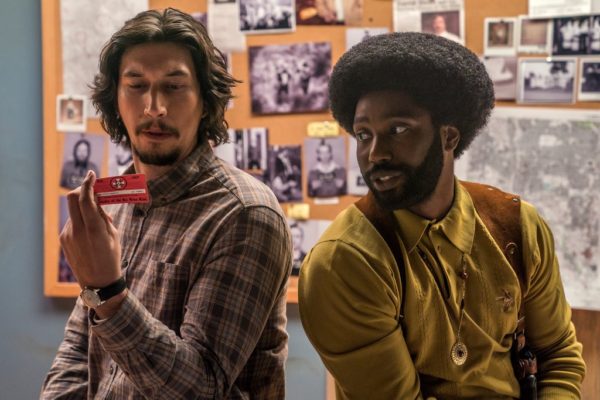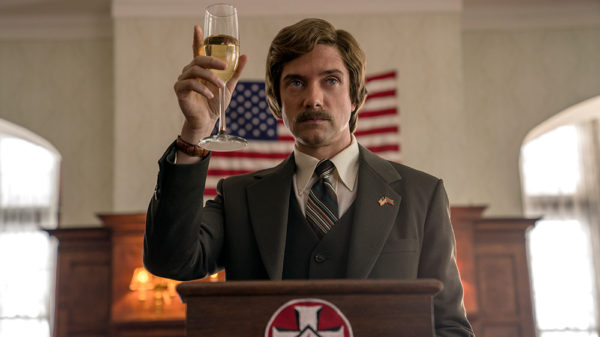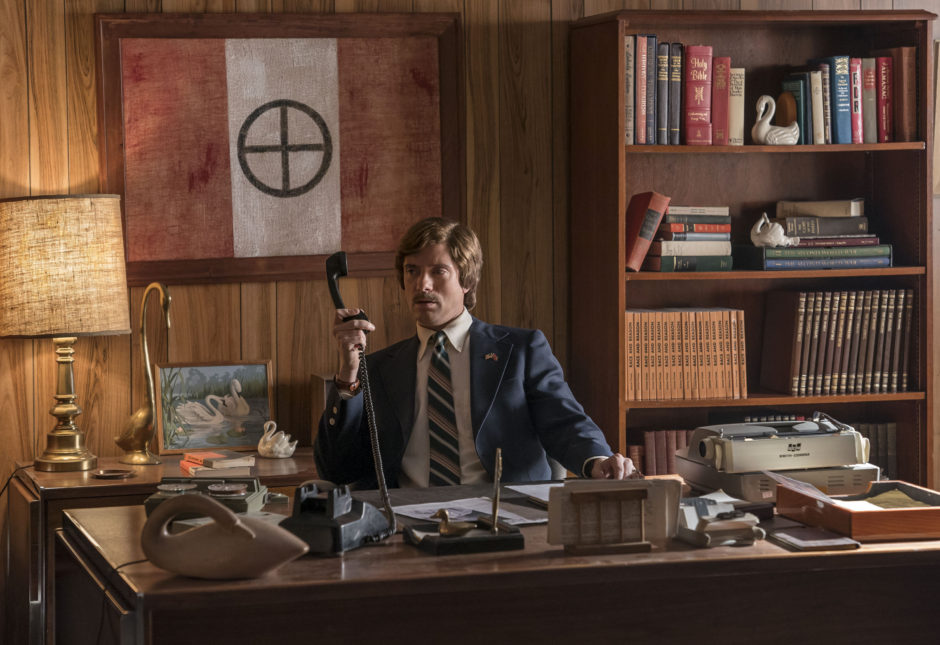We live in an era of rising racism, antisemitism and tacit acceptance of racial and ethnic hatred by right-wing populist politicians.
Case in point: A year and a half ago, at a white supremacist rally in Charlottesville, Virginia, neo-Nazi louts chanted, “Jews will not replace us.” In a profoundly disappointing response, U.S. President Donald Trump equivocated, claiming there were “very fine people” among the racists and their adversaries.
Spike Lee’s latest movie, BlackkKlansman, speaks to this troubling climate of intolerance in the United States. It’s based on a memoir by Ron Stallworth, the first African American member of the Colorado Springs police, who joined the force in the early 1970s.
Shortly after being hired, Stallworth (John David Washington) became an undercover detective, a promotion that upset one of his ethnocentric colleagues. And on his first assignment, he covered a speech by a black power radical who warned of a future race war in America.
On his own initiative, Stallworth contacted the local chapter of the Ku Klux Klan, hoping to infiltrate and expose it. Walter (Ryan Eggold), the voice at the other end, was impressed by his faux “hatred” of “niggers” and Jews. But how could a black man infiltrate the Klan? It was decided that Flip Zimmerman (Adam Driver), Stallworth’s Jewish colleague, would impersonate him when he met Walter in person.

Flip is nominally Jewish, never having identified with the Jewish community. But he’s ready to take on the Klan, even though he considers the assignment part of his job rather than as a crusade.
Walter is impressed by Flip, a cool, even-tempered individual who pretends to be a racist. But Felix (Jasper Paakkonen), a hot-headed Klansman, thinks Flip is Jewish and insists he take a “Jew lie detector” test. As they talk, Felix brings up the Holocaust, claiming it never happened. “Where’s the proof?” he demands. Conning Felix, Flip counters, “Why would you deny it? It was beautiful.”
As Ron and Flip burrow deeper into the Klan, or “the organization,” Ron has an unexpected phone conversation with David Duke (Topher Grace), the Grand Wizard of the Ku Klux Klan. Claiming he doesn’t hate blacks, Duke implies he wants to resurrect a segregationist Jim Crow America.
In the meantime, Ron begins socializing with Patrice (Laura Harrier), a revolutionary black woman who bears a strong resemblance to black power crusader Angela Davis.
By this point, Flip has made such a tremendously positive impression on Walter that he proposes him as his successor. Ron is making headway, too, having convinced Duke that, in terms of his accent, he sounds like a “pure Aryan man.”
Lee pokes incessant fun at the Klan in general and at Walter and Duke in particular. Washington and Driver turn in great performances as their disguised enemies. Grace is pitch-perfect as Duke.

This satirical film takes on absurdist overtones when Ron is tasked with protecting Duke during his brief visit to Colorado Springs. Duke accepts Ron with equanimity, but the other klansmen show disgust. As Duke and his slimy associates raptly watch The Birth of a Nation, a 1915 silent movie which glorified the Confederacy and demonized blacks, they continually shout “white power.”
An uproarious scene then unfolds during which Ron and Duke pose for a photograph.
Lee’s agenda is transparent. He advances the view that institutional racism is rife among white cops, that the police are only mildly interested in investigating organizations like the Klan, and that America is impregnated with racists and antisemites who hanker to crawl out of the woodwork
BlackkKlansman conveys these ideas in mostly jocular fashion, reminding viewers that homegrown fascists are working day and night to subvert American democracy.
